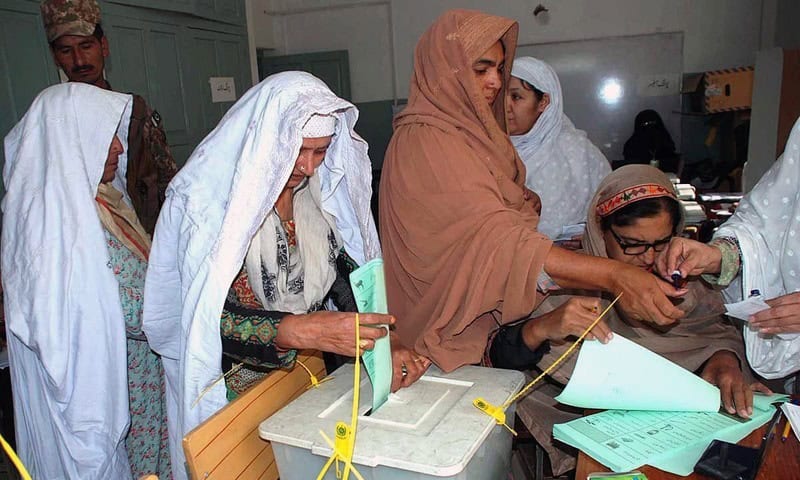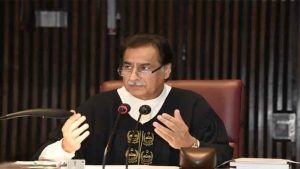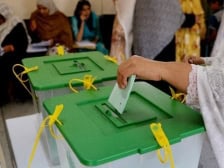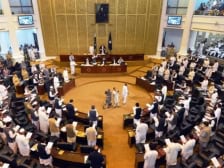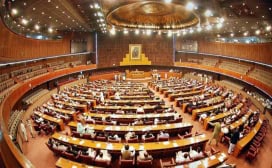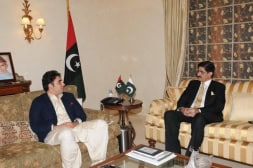Less than two weeks before the country holds its next general elections, Pakistani clerics issued a decree against women’s door-to-door campaign, calling it against Islamic values.
As women play diverse roles in election campaigns, contributing mainly to the political process. Their involvement includes candidacy, campaign management, grassroots organizing, advocacy, and voter outreach, but clerics in northwest Pakistan restricted female members from door-to-door campaigning.
A group of JUI-F clerics restricted political parties in Kohistan from using the female workforce for campaigning to woo voters.
In the decree, religious leaders said taking women door-to-door to lure voters is against Islamic injunctions and Shariah.
Reports suggest that around 400 clerics from different parts of the district flocked to the gathering and extended support to Mufti Shahzada about the decree.
Clerics said the Fatwa stemmed from Islamic injunctions with references taken from different religious books. They also called it a grave sin to stand against Islamic values.
The clerics said those who voted on linguistic, regional and on the basis of baradari grounds also opposed Islamic teachings.
General Elections 2023 saw two women aspirants including Tehmina Faheem from PK-31 Kohistan-I and former lawmaker Momina Basit, and an independent candidate Sanaya Sabeel contesting to win seats in the February 8 general elections.
Saveera Parkash becomes first Hindu woman to contest elections in Pakistan

